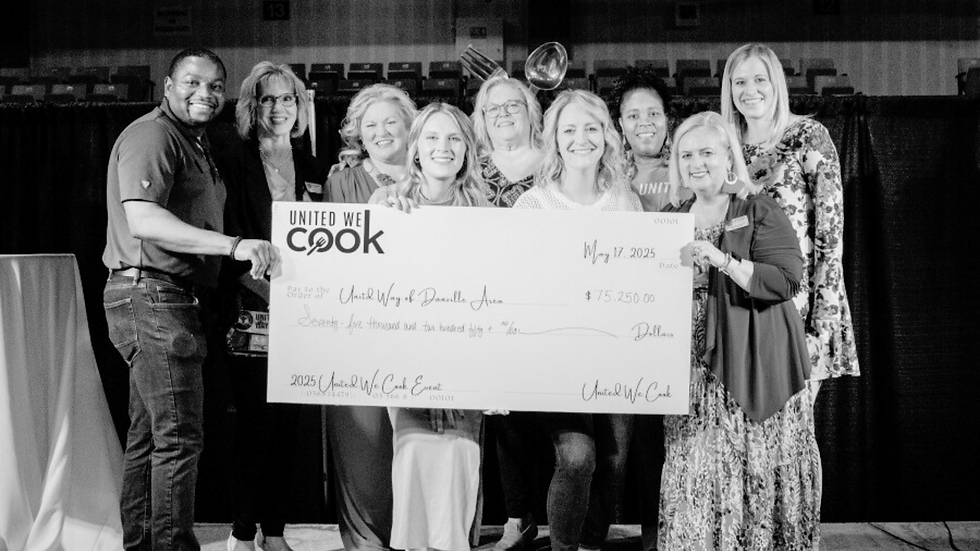You Gotta Bounce
- Oct 9, 2025
- 3 min read

Today's Read Time: 4.2 minutes
Every so often, a phrase makes its way into my head and stays there for a while. It finds its way into every conversation, every coaching session, every quiet reflection. Lately, that phrase has been a simple lesson I must not be done learning: You gotta bounce.
A colleague was recently working through a high-stakes project that wasn’t moving forward. The ideas were there, but the execution had stalled. They were caught in the thick of it tinkering with details that didn't matter, avoiding the bigger moves that did. I watched them circle the same takes, losing confidence and momentum in the process. When they finally asked what I thought, my advice was: You gotta bounce.
You can’t stay stuck in uncertainty and expect momentum to find you. At some point, you have to move. Dr. John Delony says, “Do the next right thing,” and I think about that often. The next right thing doesn't always reveal itself with clarity. Sometimes, you have to take the step first and trust that the purpose will show up as you move. In our work, time matters, and overthinking has a cost. The longer we sit in hesitation, the more it takes from us. The next right thing doesn’t have to be big or perfect. It just has to be forward.
A friend of mine recently found themselves on the receiving end of tough feedback. The kind that stings a little. It rattled their confidence and made them second-guess their work, their value, and even their future. That’s a human reaction. None of us like being told we missed the mark. But sitting in shame doesn’t help you learn from feedback. Bouncing does.
Bouncing in that moment looks like thanking the person for their honesty and recognizing the courage it took to offer difficult truth. It looks like reflecting on how you might have missed the signs and checking in with others to make sure their experience aligns with your intention. It’s movement with humility. It’s the difference between being stuck in emotion and being grounded in growth.
What does it mean to bounce?
Bouncing doesn’t mean brushing things off or ignoring the weight of what happened. It means you feel it, you face it, and you forgive yourself. Then you learn from it and move.
I’ve had my share of moments where I’ve sat too long in my own head, questioning my effectiveness, my leadership, my relationships. None of us are immune to that kind of spiral. Alexander Pope wrote, “To err is human; to forgive, divine.” I've always loved that line because the beauty is in the middle. Forgiveness is what makes the bounce possible. It’s what allows us to shift from being defined by the mistake to being refined by it.
How to bounce with feedback?
When feedback comes, I start by asking three questions: Is this coming from someone I respect? Is it true? And finally, is it mission critical?
If the answer to all three is yes, then it deserves my attention. I’ve learned that ignoring feedback from someone you respect is a quiet form of disrespect. The appropriate response is to listen carefully, thank them for their honesty, and make a plan to improve. Then circle back. Let them see that their courage mattered and that their input made a difference. I've learned this way not only do you repair confidence, but you also strengthen the relationship that built it in the first place.
How to bounce with failure?
Failure is a tougher teacher. I’m quick to take responsibility but slow to rebuild confidence. I analyze, I replay, I rethink. Over time, I’ve learned to introduce objectivity into that process. I start by asking what actually happened; what’s true, what’s exaggerated, what’s mine to own. I look for what pre-work, system, or safeguard could prevent it from happening again. And I focus on how to make it right for the client, as quickly and thoughtfully as possible.
Bouncing here isn’t about speed. It’s about composure. It’s about showing yourself enough grace to stand back up, and enough discipline to make sure the fall wasn’t wasted.
The key to a graceful bounce
Life is messy, and business rarely plays by the rules. It’s unpredictable, loud, and full of unexpected spills. You will fall short. You will fail. You will wish you could skip the part that requires you to sit in discomfort.
But you can’t let it consume you. Grace is abundant for people who are learning, trying, and improving. It’s far less generous to those who stay stuck in the spiral.
When things fall apart, take a breath. Gather what’s true. Make it right where you can. Then get back to the work that matters.
Because at some point, you’ve got to stop circling the problem and start moving again.
You gotta bounce.





Comments